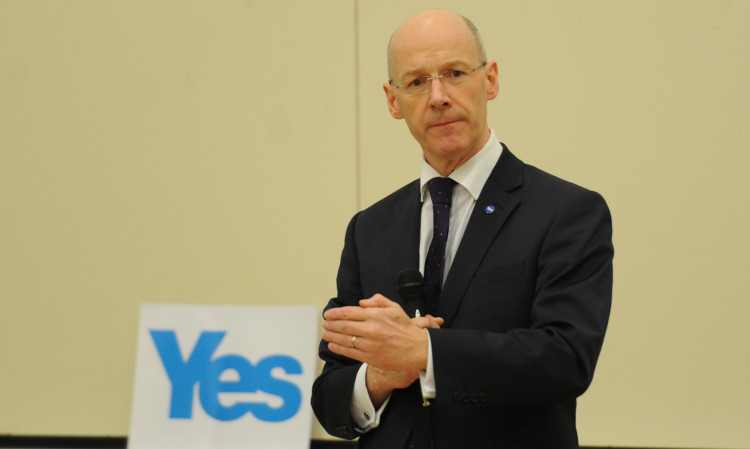
England could face tax hikes to pay for the fallout from the formation of an independent Scotland, an SNP minister has claimed.
The Scottish Government has threatened it will walk away from its share of the UK’s debts if it is not allowed to form a sterling currency union in the event of a Yes vote.
New research from the SNP administration claims this will leave what remains of the UK with an extra £130 billion of debt to deal with.
John Swinney, Cabinet Secretary for Finance, Employment and Sustainable Growth, said this equates to up to £5.5bn a year in additional interest payments, the equivalent to increasing the basic rate of income tax by one pence.
All of the pro-Union parties have said they would not sign up to a currency union with an independent Scotland, but the SNP accused them of bluffing ahead of September’s referendum vote.
A poll last week showed more than two-thirds of Scots believe Alex Salmond should publish a “Plan B” for currency ahead of the referendum but SNP ministers have said they will not budge from plans to share the Pound.
Swinney said: “The Treasury has claimed the UK would be the continuing state with exclusive access to the role and responsibilities of the Bank of England. If you follow that argument to its logical conclusion then it is also responsible for the entire debt liability which could mean the rest of the UK taking on additional debts of up to £130 billion. That would result in debt servicing costs of the rest of the United Kingdom increasing by between £4 billion and £5.5 billion each year a devastating impact which would be the equivalent of increasing the basic rate of income tax by one pence. That would represent a significant and unnecessary cost to taxpayers in England, Wales and Northern Ireland.”
A Scotland Office spokesman said: “The dangers of a currency union far outweigh any extra costs independence would impose. The Scottish Government is panicking because it hasn’t thought through the consequences of leaving the UK pound and has no plan.
“There would be no currency union because it would be a terrible idea for both Scotland and the continuing UK to enter a Eurozone-style currency deal.
“If an independent Scotland refused a fair share of debt there would be a huge negative impact on Scottish households with a mortgage or a loan. Experts estimate it could add more than £5000 to the average mortgage.
“Leaving the UK means leaving the pound and refusing to take a share of debt means higher costs for every person in Scotland. It is as simple as that.”

Enjoy the convenience of having The Sunday Post delivered as a digital ePaper straight to your smartphone, tablet or computer.
Subscribe for only £5.49 a month and enjoy all the benefits of the printed paper as a digital replica.
Subscribe